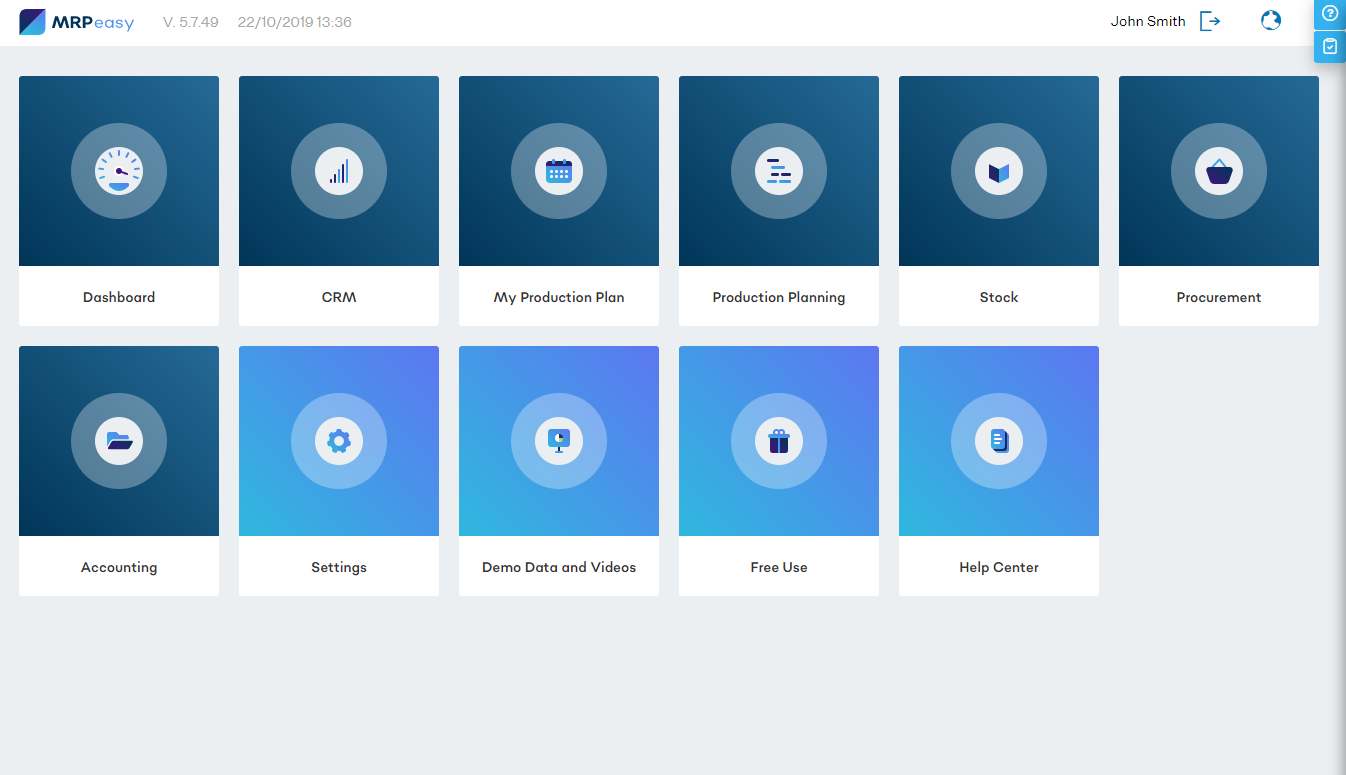9 Common Business Problems Solved by Integrated Cloud Solutions
Cloud-based systems: Giving small companies big business tools

Ever since we have had computers, businesses have been looking for ways to use them to get an edge on the competition, speed up operations, cut cost and increase profits. Developers have been happy to oblige, creating huge off the shelf and bespoke systems each designed to add value to a company in a verity of ways.
These systems have come at a cost that has made them an unapproachable option for many small and medium businesses. Leading smaller companies to have to “make-do” with paper and simple excel based systems. There have been many developments in the last few years with cloud-based business systems that have caused a drastic shift in this paradigm.
There is now a range of fantastic, effective and user-friendly cloud options that are available for all types and aspects of the business. These new cloud systems not only provide all the need functions and options to integrate, but they also come within a price range that often makes them a smart affordable option for even a one-person business.
Following is a list of ways that modern cloud systems can benefit any business but we particularly focus on the benefits for small and medium businesses.
Plan and monitor projects
Once you input your time and price data such as time costs, material costs, job times and other specifics of your business, you are able to quickly assess the time scale and cost of a job. Enabling you to send estimates to potential clients quickly.
Quoting applications make it possible to satisfy customers with accurate, branded and customised quotes that can be generated and sent quickly. Templates can be created with your businesses details and you are able to speed up your quotation process. Use different mark-up percentages to give you control over your final price, and track your quotes to see which need to be closed, and once closed convert to invoices easily.
Once you have accepted a new job, selected the members of the team working on it and scheduled the start and end date along with any key milestones markers. You are able to constantly track the overall progression of a project, and sub-tasks, along with tracking individual members ensuring everyone is fulfilling their duties and that the project is on schedule for completion.
Operational expenditure
The cost of running a local system is not limited only to the purchase and setup of the software, which for comprehensive business systems is in the tens-of-thousands to hundreds-of-thousands of pounds.
Additionally, servers and server maintenance, come at an annual cost of thousands of pounds. Cloud system are not just cheaper, the cost is usually spread across set monthly payments, so your cash flow is protected. Yet another feature that makes them a great fit for all small and medium businesses.
Real time data flow and Integration (API)
Ease of integration is what is driving cloud solutions to become so popular across the world. There is a huge range of different programs and services that can link together, allowing for the seamless flow of real-time data, giving you the power to better analyses and manage your business.
This development is really important for small and medium business until recently integrated systems like this came at a cost that reserved them for big business. We work on both, bespoke software integration and now being named as a cloud integration specialist. The API code that is featured in most cloud system gives developers like us a chance to provide custom integration with other online and offline system, so your business can be aligned 100%.
Time and cost tracking
Most professional services charge based on time, so tracking time accurately is the only way to see if a job made or lost money. There is a range of cloud products that improve time tracking accuracy and reduce manual data input, freeing up resources currently allocated to admin, which can be redistributed to revenue-generating activities.
Employees take control of their own timesheets and your cloud system does the rest. Time can be tracked either through entering time worked on a job or by setting up timers and widgets that track time for you automatically.
Time tracking software will show you who has been working on what job and for how long, so you can see what a job has cost you in employee time. Integrate and export to your payroll software system and save time on data entry. Avoid undercharging for jobs, as the data gathered from timesheets can update the quotes and invoice can be created directly from the timesheet data.
Help your team stay on track; assign a certain number of hours to each job, and receive notifications when the time set for a task is nearly used up.
Job costing also allows you to track any expenses assigned to a job, so you don’t get a struck by surprise bills. With Xero integration, you can keep your accounts updated automatically through the invoice feature and by paying purchase orders for supplies directly through Xero.
Remote access
One major benefits of the cloud that is featured across nearly all the applications of it, is remote access. Cloud systems can be interacted with from any computer and usually with mobile devices, which means that from anywhere in the world – with an internet connection – you can access your systems and keep on top of important tasks. Employees or contractors that are working on projects offsite, can still access and update systems when they need.
Collaboration
Set individual access permissions, to work together with clients, staff and contractors. Restrict access for each user allowing them only to see the information pertinent to their role. If you have contractors on your team, they can log hours against jobs remotely.
Add fantastic value to your customer experience, by providing them with a client login where they can see an overview of the progress of their job.
Emails between all parties connected to a job are stored and logged by each job, so there is no more trawling through thousands of emails. The permissions feature makes it so you control who sees what, making sure you never release information you do not want to.
Customer relationship managament
Customer relationship management systems (CRM) are one of the key components of any business system. Keeping your contacts in order, with up to date information related to the client, such as recent communication, past interactions and contact details.
CRMs are powerful tools for sales teams as you can track your leads and have insight into how your team is performing. Providing you with detailed insight on; status of leads, interaction with leads, monthly comparisons and sales staff analysis to name a few.
Offline CRM systems are a great way to store and interact with clients but the responsibility off updating the records is with the user, often leading to inadequately filled out client details.
There is a range of cloud CRMs. Most sector specific cloud systems come with a built-in CRM of some kind, usually specified to the industry the cloud system is built for so that the information fields fit your clients. Cloud CRM update automatically cutting down on data entry and assuring records are up to date.
Affordability
The development of cloud business solutions is really important for small and medium business (SMB). Until recently integrated business systems come with a five to seven figure price tag, reserving them for big business.
We work on both sides, from bespoke software integration to now being named as a cloud integration specialist. We are no able to offer SMBs the automation, insight and control that we have provided our bespoke software clients with for years, but at a price that fits comfortably into the budget of any small business.
Data Export
If your businesses reach the point where you have outgrown your cloud services, you can transfer your data with ease. Most cloud programs feature robust data export system, which allows for the safe removal and transfer of data to be hosted on your new system. There are no worries about data format clashes and loss of historical data.
Conclusion
It is no surprise that specially designed software, built to benefit the needs of businesses, actually helps the organisation, planning and management of business operations. That is obvious and not the point of this post.
The important take away is that until very recently, small and medium business had two choices; ineffective make-do systems, or buying software that was way out of budget. The development of cloud-based business solutions means that there are now affordable systems that are fit for purpose and crammed full of useful features. Including powerful integration options that improve your data flow, and save you time and money.
If you would like to speak to one of our experienced cloud consultants, to discuss how the cloud could be used to benefit your business. Call; 0800 669 6457 or email; enquiries@bluehub.co.uk
Posted by Sophie Appleton on 02/06/2015 in http://www.bluehub.co.uk/Blog/Index/22



